If you are planning on buying chickens for the first time, or you are thinking of buying some new additions to the flock then it’s always a good idea to know what to look out for before you go to look and find yourself making a decision in the heat of the moment you might regret later on!
Signs of health
Healthy chickens should look alert and be reasonably active most of the time, generally on the look out for food. Chickens should not be hunched up, drowsy or even asleep during the day this is a sure sign of something being wrong.

Healthy white Orpington growers.
Stress is the biggest cause of chickens picking up a disease. Stress is brought on by a number of things, including moving them to a new environment or introducing them to a new flock. If their immune systems are weak to start with, there is more chance of them becoming ill after you have got them home so it can pay to look out for positive signs of health and potential warning signs that all is not quite right.
Combs are usually a good indication of heath. Hens in lay have bright red combs. Combs that look blue in any way indicate circulation problems, especially in cockerels and blue combs can indicate potential disease or organ problems. Cockerels with excessive scabs on the comb can indicate that they have been fighting with others which would make me wary about the breeders management of his birds.
Inspection
Don’t be afraid to ask whether you can inspect the birds you are planning on buying. This will give you an idea of their temperament and give you the opportunity to inspect them for lice.
Lice are like skin coloured miniature grains of rice that can be found on feathers and skin. They are fast moving and will crawl away as you expose them to the light. They are not a huge problem and treatment is quite simple but if they are heavily infested it might be an idea to look elsewhere if the birds don’t look in top condition.
Northern Fowl Mite can look like tiny specks of dirt around the vent area. Yes, it’s a good idea to take a look around the vent when inspecting a hen.
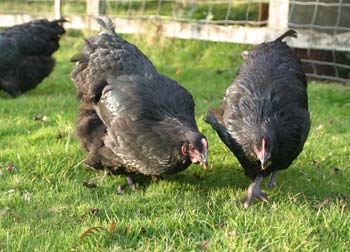
Young Black Australorps
Feathers should also be relatively clean around the vent (some profusely feathered breeds can get slightly messy around this area) but a bird with a lot of muck on the feathers around the vent can indicate the bird is carrying a worm burden.
Feathers should not be missing unless a bird is going through a moult (in which case you should not really be buying them as the moult is a very stressful and demanding time for them). Missing feathers can indicate bullying in the flock which does occur but often an unwell bird can lose her position in the pecking order if she is not in the best of health and get bullied as a result.
Check legs and feet for raised scales (scales sticking out at 90 degrees) which indicates Scaly Leg Mite, a particularly uncomfortable problem for chickens.
The upper and lower beak should meet in the middle and should not be crossed over. Toes should be straight. Bent toes are a deformity that is usually inherited and whilst birds with these are good pet birds, you should not breed from birds with such deformities.
Respiratory problems
Eyes should be clean and not have any bubbles in the corners. When picked up, a bird should not be wheezing or coughing. If in doubt, put your ear close to their beak and listen for a minute. Birds with respiratory problems should definitely be avoided.

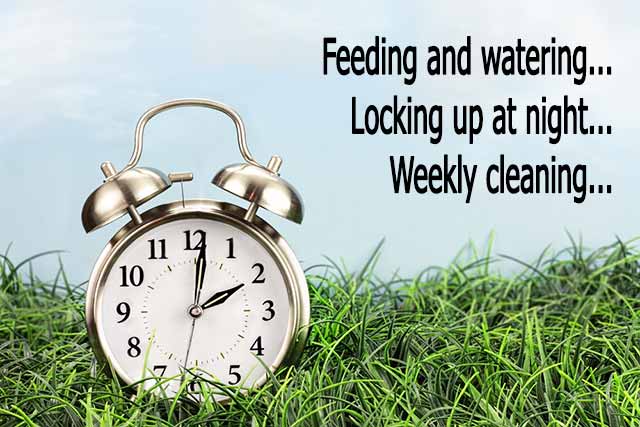
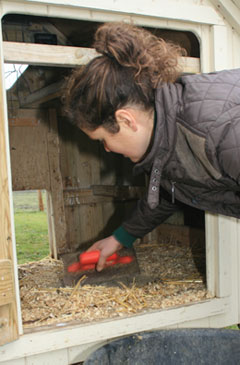
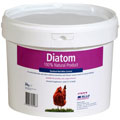
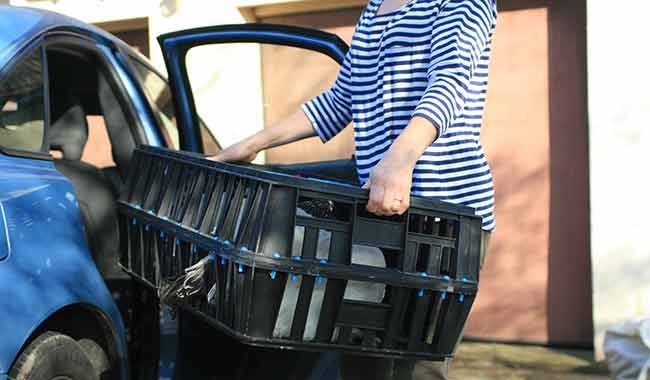

Hi, recently joined the throng of chicken keepers and have four hens, one already laying and the others about 2 weeks away. The Blackrock (and we didn’t notice this when buying) has a prominent lower beak and appears to have trouble taking corn from the ground etc. What can we do?
Beaks can be trimmed with dog nail clippers – cut it at 45 degrees each side, a little at a time.